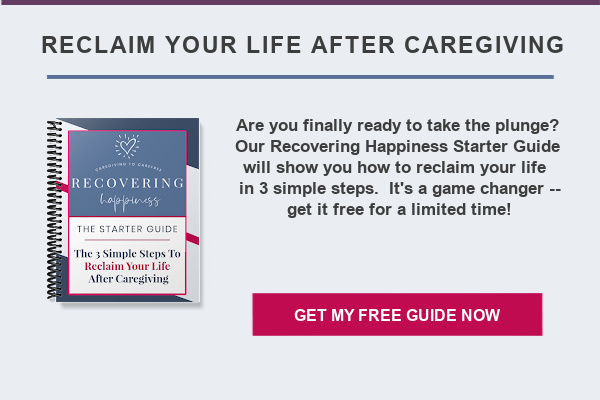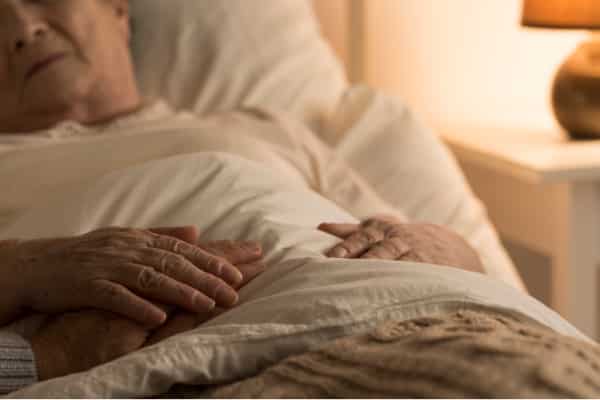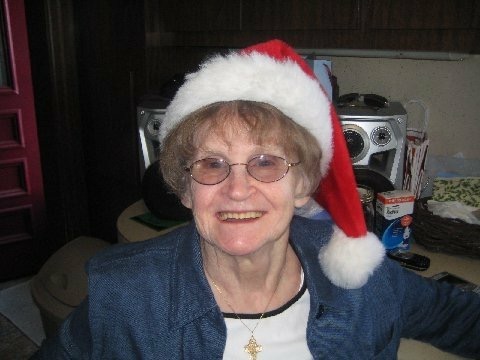
Dying at home might be preferable for the dying, but for family caregivers, it leaves an indelible emotional wound that lingers for years.
I don’t regret allowing my mother to die at home. I know it’s what she wanted. We had spoken of it years earlier before she was diagnosed with dementia. And, I thought it was what I wanted too, but having lived through it, I can tell you I’m not sure I’ll ever get over it.
My mother was like a cat with nine lives. She’s lived through countless medical episodes that would have killed most people. Like the brain hemorrhage she endured at age 84 from an overdose of coumadin. Anyone else would have been dead from such an assault on the brain, but not my mother. Or the time she got pneumonia at age 87. I paced the floor of the hospital day and night, worrying this was the thing that would finally do her in. But low and behold, she pulled through and lived another two years.
Her nickname was coconut, but it should have been tiger!
WHEN THE END IS NEAR
So as I enter her room the Saturday before her death and see her rapid breathing, eyes partially opened and glazed over, lying there unresponsive, I am knocked off guard, frozen in place. For a split second, what I see doesn’t register. I know something is wrong, yet I tell myself she’ll pull through like she always has. I know it was foolish of me to believe this, but I continue to convince myself that this too shall pass, and we’ll be back to our old routine before you know it.
But her labored breathing continues. I call the hospice nurse to come over only to be told she’ll walk me through how to medicate my mother over the phone. I’m dumbfounded. My expectations were different than the reality that was playing out. I thought hospice would be here to help me through this process. I am frustrated, but more importantly, I’m scared.
I administer the medications as instructed, but after several hours with no improvement, the nurse finally shows up at my door. She takes one look at my mother and says, ‘poor dear, let’s get you more comfortable.’ And I think to myself, ‘this is why you should have come over when I called. Why on earth am I supposed to do this alone?’
I also can’t help but remember all those other times my mother tricked us into believing it was the end of the road only for her to recover miraculously. She had cheated death so many times, why not now? My denial at that moment is so great I asked the nurse, ‘how do you know she won’t pull through? Why is this time different? She replies, ‘because I know, this is the end of the road for your mom.’
In actuality, I should have seen it coming. Just the week before, my mother, despite her advanced stage of dementia, turned to me and said, “I want this to be over.” My mother, who barely knew her name, somehow found that place in her brain to reveal to me what was deep in her heart – that she was ready. She was finally ready to stop living, ready for peace, prepared to go home.

And if that was not enough of a sign, the night before she went into a coma, she had a conversation with me—a real one.
My mother called me Alice (Alice was my mother’s sister) – pretty regularly. But when she did recognize me, which was not often, she would call me ‘honey.’ That Friday night, I went into her room to see if she wanted anything to eat. I greeted her as I always did with a friendly, ‘hi mom.’ That night she replied, ‘hi, honey.’
I was so surprised, I asked her if she knew who I was, and she said, ‘of course, I know who you are’ with a big smile.
I sat on the edge of the bed and held her hand and stroked her hair, and we talked for just a brief time. If I had known it would be the last conversation I would ever have with her, I wouldn’t have been discussing if she wanted pudding or a soft-boiled egg for dinner. But I didn’t recognize what was happening. I hadn’t put all the pieces together. By the time I returned to her room, she was back to calling me ‘Alice’.
When you’re in the trenches of caregiving it becomes easy to miss these subtle signs that death is fast approaching. Caregivers are numb most of the time. Our feelings and emotions are dead from the constant and draining process of caring for a loved one. It’s almost a necessity to shut off your feelings to be able to survive the caregiving process. If not, most of us would be in a puddle of tears every single day. So even though she had cheated death so many times before when death was right there at the doorstep, I wasn’t ready for it to arrive.
DYING AT HOME
Dying at home may be the preferred way to go for the dying. But for family caregivers, the home hospice, dying at home experience is nothing short of a waking nightmare. It is a gut-wrenching, soul-draining experience that no amount of therapy will ever be able to remedy. It becomes an unforgettable experience burned inside your memory, and no matter how hard you try, you can’t rid yourself of it.
Don’t get me wrong – I have nothing but great respect for the hospice workers who helped me during this emotionally horrible time. But I expected it to be different. I expected not to be alone during the toughest part of the caregiving journey.

The die-at-home argument is rooted in long-standing research and surveys that show most people would prefer to die at home than in some sterile, impersonal hospital or institution. And according to a recent New England Journal of Medicine report, more people die at home today than ever before. Medicare and Medicaid make it convenient and even easy by providing your loved one with palliative medical care, medications, and equipment, along with a full array of compassionate nurses and staff members.
But what is seriously lacking is the conversation about the reality of death and just how hard it is to watch. Nurse Hadley and Nurse Julie from Tik Tok are doing a great job normalizing death and answering the questions many of us have about the death and dying process. But Tik Tok didn’t exist six years ago when my mother was dying and so the death and dying process caught me off guard.
Watching my mother die was frightening, difficult, and lonely, but most of all deeply sad.
And so the dying process began and lasted much longer than I could have anticipated.
DO WE DIE THE WAY WE LIVE?
People die the way they live – at least that’s what I believe.
My father was a pretty easy going guy. He literally died in the middle of a conversation. No-fuss, no mess, no suffering. Just here one minute and gone the next. He had what’s referred to as a ‘good death.’
My mother, on the other hand, struggled her entire life with just about everything. She struggled to be a wife and mother; she struggled with her mental health; she struggled to fit in. She was a profoundly complicated person who suffered at the hands of an alcoholic father and a mother who allowed her husband to steal from his kids and see him drunk and disorderly.

And so at her death, she struggled too, and I was grossly unprepared for it.
My mother struggled to breathe, starting with shallow breathing that culminated into this horrible ‘fish out of water’ breathing that was gut-wrenching to watch. Her lower extremities turned dark and discolored, almost like she was covered in deep bruises. Her eyes never closed. Instead, they stayed fixated on the ceiling. All in all, it was painful to see her like this.
I have always been a deeply spiritual person. I believe in God, and I was never afraid of dying. All that changed while watching my mother’s death process. For weeks I struggled to sleep; the scenes of her suffering haunted me. Every time I would close my eyes, all I could see was my mother’s face fighting to breathe, seeking out any air she could. I would recall the color of her skin and how it almost looked as if it was rotting right off her body.
And I was filled with anxiety about my own death and if I would suffer the same fate as my mother. Of course, in retrospect, I understand that I was suffering from caregiver Post Traumatic Stress Disorder (PTSD) and didn’t know it.
My daughter was with me during my mom’s final hours, and when faced with writing her eulogy, struggled because she couldn’t get those same images out of her mind. She wanted to remember her grandmother in all her glory, yet the sights and sounds permeated her thoughts and made it extremely difficult for her to recall all that was good about grandma.
WHEN WOULD THE SUFFERING END?
My mother was like this for three days. For three days, my mother’s life was a mixture of fighting to stay and fighting to leave through a morphine-induced haze.
The morning of her death, I awoke after a short doze only to see that she was still alive, still suffering, still struggling, and I had a complete meltdown. How on earth could God allow someone who had already suffered so much to keep on suffering? Why did he not take her in the night and end this nightmare? How much more were she and I supposed to endure?
I CRIED as I have never cried before. I was utterly broken at that moment. For the first time in my life, I wasn’t sure I could take much more.
I picked up the phone and called one of my mother’s closest friends and asked her to pray for my mother to die. Four hours later, my mother passed. She was finally free of the physical and mental anguish of dementia.
My mother died in my home, in her own bed, surrounded by her loved ones. But honestly, in the end, I don’t think it mattered to her. She was utterly unaware of her surroundings.
But it did matter to me.
I gave my mother the gift to die the way she wanted, at her pace and in her time.
Years later, I better understand the dying process in all its reality. And, despite all I’ve witnessed, I’m not nearly as afraid to die as I once was. However, I would be lying if I told you that fear never creeps into my mind when I’m alone and contemplating the end of my own life. One thing is for sure, I hope I have plenty of morphine flowing through my veins, and I’m as unaware as my mother.
More emotional wellness articles for you:
What Happens When Caregiving Ends?

Leave a Reply